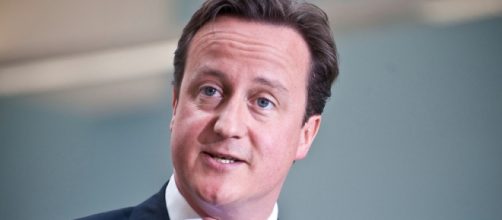DAVID CAMERON has unveiled his priorities for the next five years and they will involve housing, tackling extremism and negotiating a better deal with the rest of the EU.
The Prime Minister confirmed to the Conservative Party Conference today that he would not stand as Prime Minister at the next General Election.
However, he added that he had a packed agenda that he was impatient to implement.
Much of the speech had been trailed in advance, but it reaffirmed the plans to extend his free schools project, reform the prison service and make changes to the benefits system.
One of the main challenges facing the Prime Minister will be the EU referendum, which he has promised will happen before the end of 2017. He said that the reforms he was advocating were important because “it’s got too big, too bossy, too interfering.”
The issue of Europe is toxic among the Conservative Party, and in a telling comment Cameron said he had “no romantic attachment to the European Union and its institutions.” There was a more important reason for arguing for Britain’s place in a reformed EU: “It’s the biggest single market in the world.”
But he received applause from the Manchester audience when he declared: “Let me put this very clearly: Britain is not interested in ‘ever closer union’ – and I will put that right.”
However, most of his speech was aimed at domestic issues and he outlined the targets for his last term as Prime Minister: the ‘scourge of poverty’, the ‘brick wall of blocked opportunity’ and the shadow of extremism.
He took aim at some Islamic religious schools where he said the pupils were being taught that they shouldn’t mix with people of other religions; were being beaten; and were taught conspiracy theories about Jewish people.
“These children should be having their minds opened, their horizons broadened and not having their heads filled with poison and their hearts filled with hate,” he said.
To remedy this, Mr Cameron said all schools would be required to be registered and inspected.
“And be in no doubt: if you are teaching intolerance, we will shut you down.”
This will all be part of a drive to equality, and he said that current laws would be more strictly enforced. “For too long, we’ve been so frightened of causing offence that we haven’t looked hard enough at what is going on in our communities,” he said.
Citing issues including forced marriage, and female genital mutilation, he observed: “This passive tolerance has turned us into a less integrated country; it’s put our children in danger. It is unforgiveable.”
Other issues included:
* Schools: he said that the days of local authorities running schools would be “a thing of the past”.
* Housing: New rules on developers would ensure affordable homes for sale instead of simply for renting.
* Prisons: He suggested more use of non-custodial sentences and said a prisons rebuilding programme was overdue.
In a speech that took its themes as ‘Freedom, democracy and equality,’ he called on his party to end discrimination and fight for equality.
He said, to a standing ovation, that ‘these [values] are precious.’

